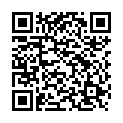|
|
|
| Module code: PIM-IUP |
|
|
2V+2U (4 hours per week) |
|
6 |
| Semester: 2 |
| Mandatory course: no |
Language of instruction:
English |
Assessment:
Project: written composition and presentation
[updated 05.11.2025]
|
KIM-IUP (P221-0206) Computer Science and Communication Systems, Master, ASPO 01.10.2017
, semester 2, optional course, telecommunications-specific
PIM-IUP (P221-0206) Applied Informatics, Master, ASPO 01.10.2017
, semester 2, optional course, informatics specific
PIM-IUP (P221-0206) Applied Informatics, Master, SO 01.10.2026
, semester 2, optional course, informatics specific
|
60 class hours (= 45 clock hours) over a 15-week period.
The total student study time is 180 hours (equivalent to 6 ECTS credits).
There are therefore 135 hours available for class preparation and follow-up work and exam preparation.
|
Recommended prerequisites (modules):
PIM-SAR Software Architecture
[updated 26.09.2025]
|
Recommended as prerequisite for:
|
Module coordinator:
Prof. Dr.-Ing. Pascal Stoffels |
Lecturer: Prof. Dr.-Ing. Pascal Stoffels
[updated 17.01.2024]
|
Learning outcomes:
After successfully completing this module, students will be able to classify selected problems in production and identify corresponding starting points.
They will be able to develop solutions for industrial problems.
They will be able to plan the individual phases of a project, define milestones, monitor progress, and evaluate and summarize the results.
[updated 08.08.2024]
|
Module content:
- IT infrastructure/architecture in factories
- Industrial communication
- Industrial ethernet
- M2M communication (OPC, MQTT, Apache Kafka)
- Monitoring machines/data analytics/AI
- Project management
[updated 05.11.2025]
|
Teaching methods/Media:
Students will work on a software solution for selected production problems.
[updated 08.08.2024]
|
Recommended or required reading:
Thomas Stober, Uwe Hansmann: Agile Software Development; Springer-Verlag Berlin Heidelberg 2010
Jürgen Kletti (Hrsg.): MES – Manufacturing Execution System; Springer-Verlag Berlin Heidelberg 2015
Jürgen Kletti: Konzeption und Einführung von MES-Systemen; Springer-Verlag Berlin Heidelberg 2007
Manfred Bornewasser, Sven Hinrichsen (Hrsg.): Informatorische Assistenzsysteme in der variantenreichen Montage; Springer-Verlag GmbH Deutschland, ein Teil von Springer Nature 2020
Alexander Sinsel: Das Internet der Dinge in der Produktion; Springer-Verlag GmbH Deutschland, ein Teil von Springer Nature 2020
Johannes Pistorius: Industrie 4.0 – Schlüsseltechnologien für die Produktion; Springer-Verlag GmbH Deutschland, ein Teil von Springer Nature 2020
[updated 08.08.2024]
|
Module offered in:
SS 2025,
SS 2024
|


